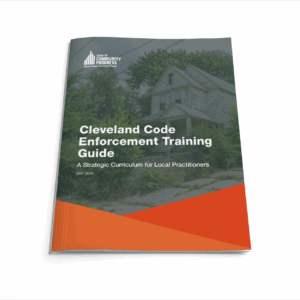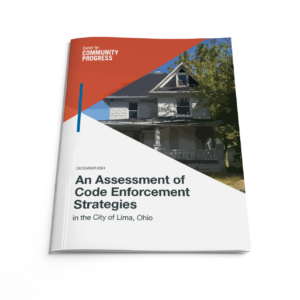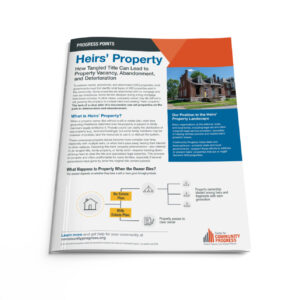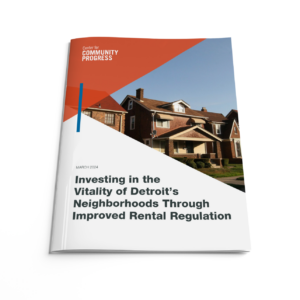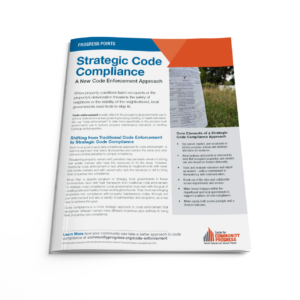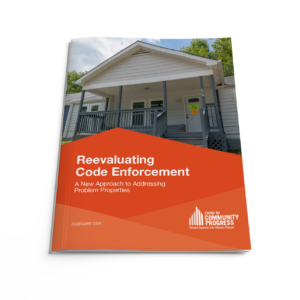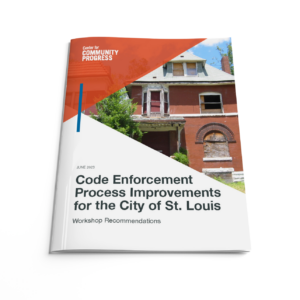Publications
Code Enforcement System
Recommendations to Promote Equitable Code Compliance for Substandard Rental Properties
Community Progress assessed Providence’s code enforcement approach for deteriorating, occupied rental properties and recommended improvements.
Read More »A Strategic Curriculum for Local Practitioners
A curriculum for training code enforcement officers, focused on compliance without unintended harm.
Read More »Addressing Vacant and Abandoned Properties through Code Lien Foreclosure
Guidance for dealing with the community’s vacant, abandoned, and deteriorated properties.
Read More »Observations and Recommendations
How Lima can address its vacant and abandoned buildings and lots to improve community wellbeing.
Read More »How to Advance Community Goals Through Land Banking and Other Tools
This brief is a product of the New Jersey Land Bank Launch Initiative. The competition for land (with and without structures) is being felt acutely across the Garden State. Since the pandemic, many New Jersey communities have seen markets flip almost overnight, with an influx of new residents who had…
Read More »How Tangled Title Can Lead to Property Vacancy, Abandonment, and Deterioration
This factsheet explains why it’s important to deal with heirs’ property in order to prevent future vacancy and abandonment.
Read More »A Report for the City of Detroit
Recommendations for changes to Detroit’s Rental Ordinance to help more renter households access safe, healthy housing.
Read More »A Brief Primer
This brief explains how equitable, efficient, and effective code enforcement can be successful in preventing vacancy.
Read More »A New Approach to Addressing Problem Properties
Traditional code enforcement—focused on issuing citations and fines—isn’t working in the places that need it most. A more strategic approach could change that.
Read More »Workshop Recommendations
Recommendations to make code enforcement more equitable, efficient, and effective in St. Louis, following a workshop.
Read More »

